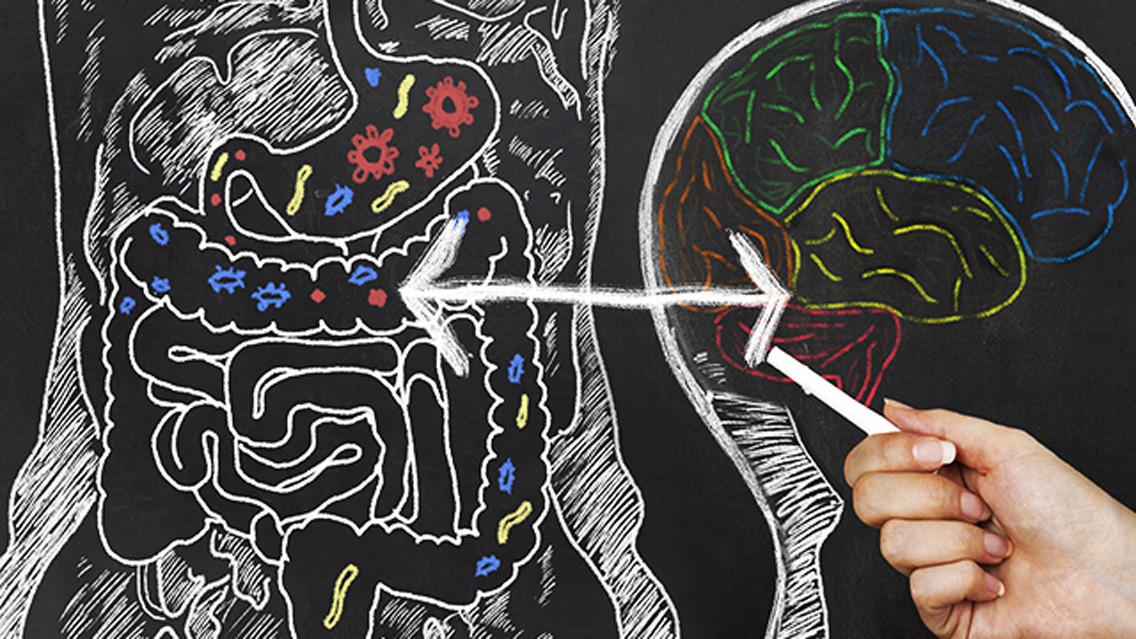A raft of recent studies has shown that the microbiome is a factor in the development of obesity, type 2 diabetes, asthma, and cardiovascular disease. Now, we can add Alzheimer’s disease to the list.
A new study, published in Scientific Reports, has shown that certain gut microbiota may speed up the development of the chronic brain disease.
Researchers studied both healthy and diseased mice and found that those with Alzheimer’s had a different composition of gut bacterium. Healthy mice also had a lower level of beta-amyloid plaque in their brains than the mice with Alzheimer’s. (Beta-amyloid plaques are the lumps of protein fragments that form at nerve fibers, creating tangles leading to neuroinflammation.)
To further test the connection between intestinal flora and Alzheimer’s disease, researchers placed microbes from mice suffering from Alzheimer’s into germ-free mice. The result? The germ-free mice given the gut microbes from the mice with Alzheimer’s developed more beta-amyloid brain plaques than those who received bacteria from healthy mice.
“The results mean that we can now begin researching ways to prevent the disease and delay the onset,” researcher Frida Fåk Hållenius, PhD, of Sweden’s Lund University Food for Health Science Centre, says in a press release. “We consider this to be a major breakthrough as we used to only be able to give symptom-relieving antiretroviral drugs.”
‘Take Care of Your Microbiome, It’ll Take Care of You’
The findings open the door to testing new preventive and therapeutic strategies — such as dietary modification — on bacteria’s role in Alzheimer’s disease development.
In November 2016, for example, Iranian researchers found that probiotics helped improve memory in people suffering from severe Alzheimer’s disease. Although the sample size was small (60 participants) and the study lasted only 12 weeks, the results indicate that eating microbiome-boosting foods may improve memory in those who are cognitively impaired.
“If you take care of your microbiome, it’ll take care of you — and that’s all the way up to your brain,” says leading Alzheimer’s researcher Rudolph Tanzi, PhD.
To reduce your Alzheimer’s risk, Tanzi advises avoiding eating processed and other inflammation-promoting foods, which negatively affect gut microbial communities, and focusing on real food.
Look for more tips on reducing Alzheimer’s risk in our upcoming story “Untangling Alzheimer’s,” which will be published in the March 2017 issue.




This Post Has 0 Comments